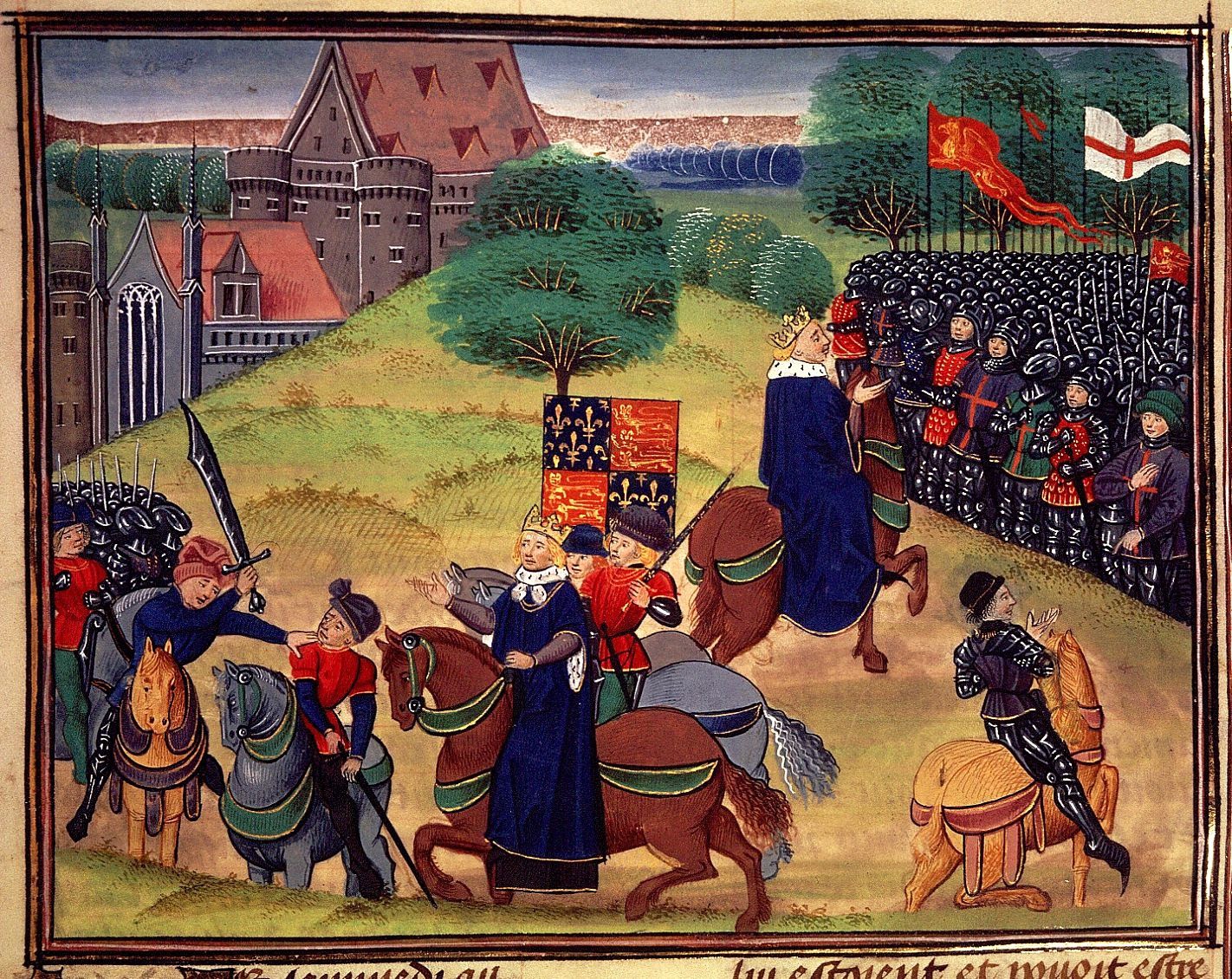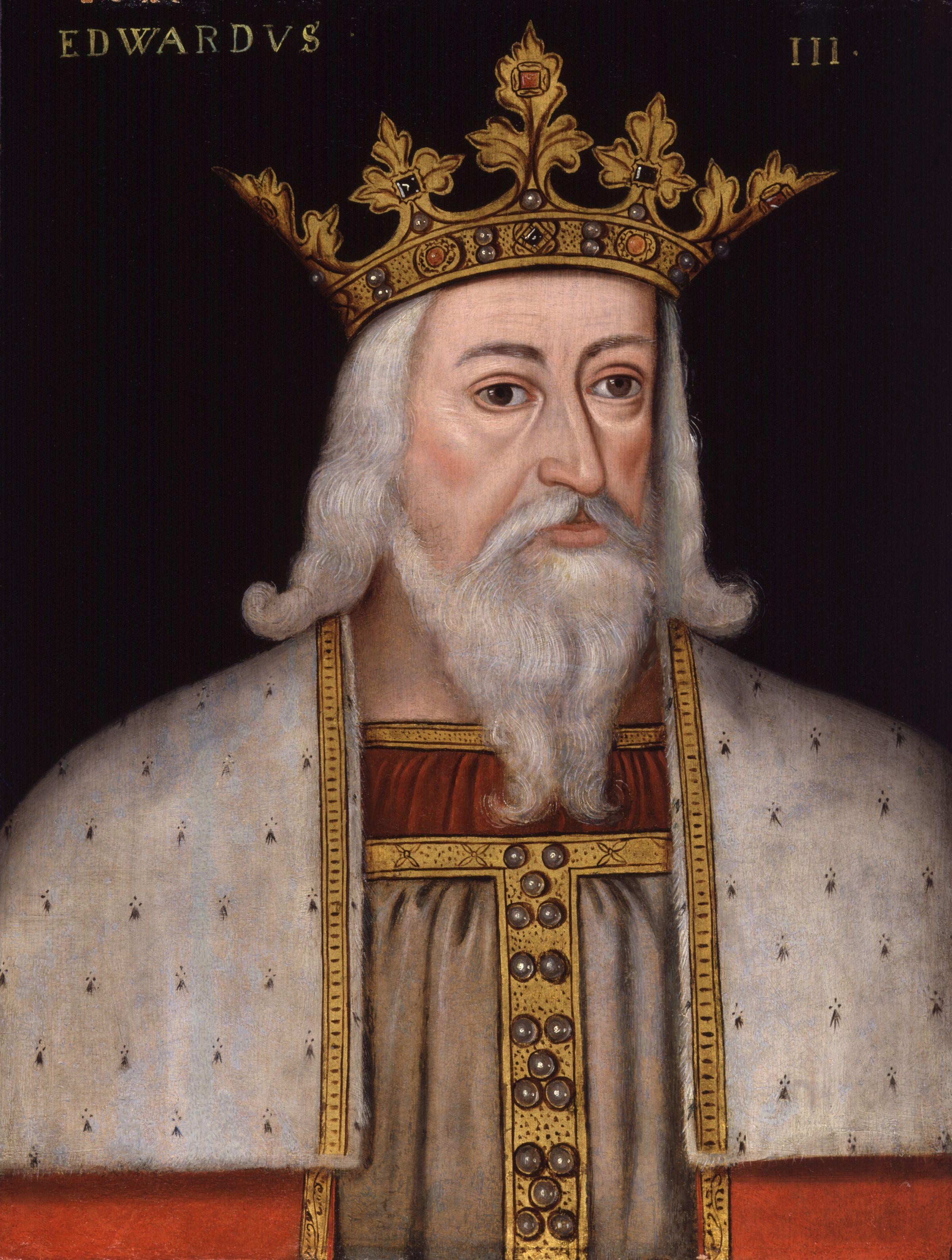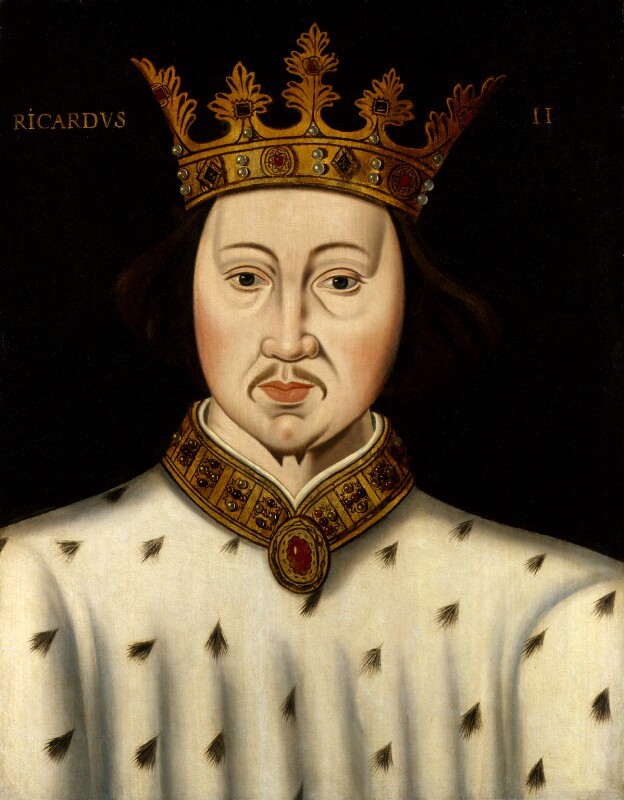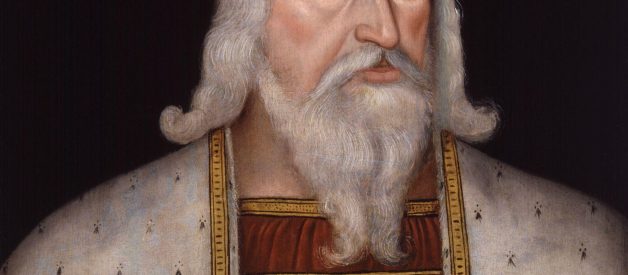 The Peasants? Revolt (1381)
The Peasants? Revolt (1381)
The 14th century was, both worldwide and in relations to England, a century of social turmoil, filled with plague, famine, and an unprecedented desire for social mobility. By the end of the 1300s, the long-standing system of serfdom which had previously been the core of English socioeconomic and class relations had started to irreversibly deteriorate. The key turning point was the Black Death of 1348 (which began the year prior in Europe) and saw the foundations of English society shake. Therefore, it makes sense to look at the 14th century not as one unit but rather as two, with the plague as a divider.
Before the plague, English life for the peasant class remained fairly unchanged from what it had been for hundreds of years. Medical technology and practices had been slowly improving over time, although more so in the Islamic world than in Europe, and many afflictions ? such as the Black Death itself ? were explained as divine punishment or by superstition, rather than any biological cause. England?s population had grown rapidly from the year 1200, rising to 5 million by 1400. This increase was largely spurred on by, and subsequently encouraged, the prosperity of England?s agricultural economy ? which still made up a very rural society ? caused by the adoption of crop rotation techniques. This, in turn, led to an increase in the number of towns. Although many were small, others, such as Norwich, consisted of around 5,000 inhabitants and the biggest cities, such as London, neared 40,000 in population. This meant that society was no longer merely agricultural and other professions, such as in the exportation of wool and cloth, could be pursued.
The Church was also a prevalent force at this time as England was still highly Christian (as a result of, and certainly a cause of, scientific ignorance) and this constituted a significant part of a peasant?s life. A peasant was under an economic obligation to pay a tax (known as a ?tithe? to the Church), which came in the form of 10% of the value of the land that he farmed. At a time when peasants were struggling to get by, this tax was deeply unpopular, although it was rarely challenged due to the deep-set nature of religious faith. Indeed, the majority of the population were not even able to comprehend the words delivered to them from the Bible each Sunday, as it was not given in the vernacular and the vast majority of the lower classes could only speak English. Most were also illiterate, which meant that independent religious practice was difficult and possession of books was pointless as well as expensive. At this time, books were often as much a testament of wealth as an intellectual endeavour. Books were incredibly expensive, especially as the printing press would not be invented until 1440, and were often encrusted with jewellery to signify the wealth of its owner.
Whilst life was certainly hard for a 14th-century commoner, with a bad harvest being the difference between life and death, there was still time for pastimes. Such activities included gambling, such as dice games, and playing Chess. Alternatively, inns had, since their emergence during the 12th and 13th centuries, increased in number throughout the country, offering commonfolk an opportunity to relax and converse with others. The exact hobbies and feelings of peasants during this time remains somewhat unknown due to the lack of credible primary sources as a result of a high illiteracy rate and the gradual decomposition and deterioration of the few physical first-hand accounts, which were often lost or discarded.
 Edward III, King of England (1327?1377)
Edward III, King of England (1327?1377)
The 14th century, however, is defined not by its first half or the continuation of pre-existing societal norms but rather the drastic change that occurred during and as a result of the Black Death sweeping across Europe in 1347 until 1351. In England, the Black Death killed an estimated 1/3 to 1/2of the population. Whilst this was not immediately a good thing, with the majority of people losing loved ones, its ramifications led to a boom in social mobility and marked the beginning of the end for late-stage feudalism. The reason for this is surprisingly simple. The sudden decrease in population, particularly amongst members of the peasant class ? who could do little to protect themselves from the plague ? meant that lords now had reason to be concerned about employing enough workers to survive. For the first time in English history, the working class had the power to make demands of their lords and the lords had an incentive to offer workers higher wages, in hope that they would work for them rather than the lord next door. This could be seen as ushering in the era of capitalism, of which we are of course still a part, as there was no longer a surplus of workers who would accept any work that facilitated their survival.
However, economic grievances were yet to come to an end. During this period, and up until 1453, the Hundred Years? War between France and England had been raging on. This had led to an increase in taxes, which greatly angered the peasants who barely made enough to survive without having to dish out sums of money to a war which ultimately made little difference to their lives. The plague also had some downsides economically. In response to the chaos, the English parliament passed the Ordinance of Labourers in 1349 and the Statute of Labourers two years later which attempted to fix wages at pre-plague levels and made illegal any attempt to break a contract or refuse work. The government also passed A Statute Concerning Diet and Apparel in 1363 which was a sumptuary law aimed at preventing the peasants from using their increased wages to purchase expensive goods. Whilst unenforceable, it marked an unprecedented shift in the government?s attitude towards the lives of the commoners. This harsh limitation on what was a great economic opportunity for English peasants was inevitably doomed to end in riot. And so it did on the 30th of May 1381, the beginning of the Peasants? Revolt.
 Richard II, King of England (1377?1399)
Richard II, King of England (1377?1399)
The revolt, led by Wat Tyler, was also caused by England?s expensive war with France which required lots of money to fund. To raise this, in addition to normal taxes often levied on the peasants, Parliament introduced the poll tax. The tax raised over 22,000 but was deeply unpopular and its successor two years later, in 1379, tried to use a sliding scale ? taxing the wealthier more ? to lessen its unpopularity. All this resulted in, however, was less money being raised (only 18,000 out of an ambitious 50,000 goal) due to tax evasion amongst the nobility. The English government found itself in an unwinnable situation: the wealthy had money to give but the means to avoid doing so and the poor had no way of evading tax but little to contribute. The third tax implemented in 1381 ramped up the costs on all people over 15 and was the final straw in causing the rebellion. The revolt saw no less than 1,500 people march on London as well as coinciding with other revolts in north and west England. Whilst the revolt was ultimately crushed and did not achieve its aims of ending serfdom, reducing land rent prices, and abolishing the higher clergy, it must be recognised that these aims were radical and it did result in the poll tax not being used again.
Overall, it?s clear that the life of a peasant in the 14th century was no utopia. Whilst their situation improved following the Black Death, around 1/3 to a possible 1/2 of them would have died and thus not be around to see it. Other than economic opportunity, most things remained largely unchanged, as similar hobbies, types of work, religious obligations, and daily customs remained consistent throughout the time period.


